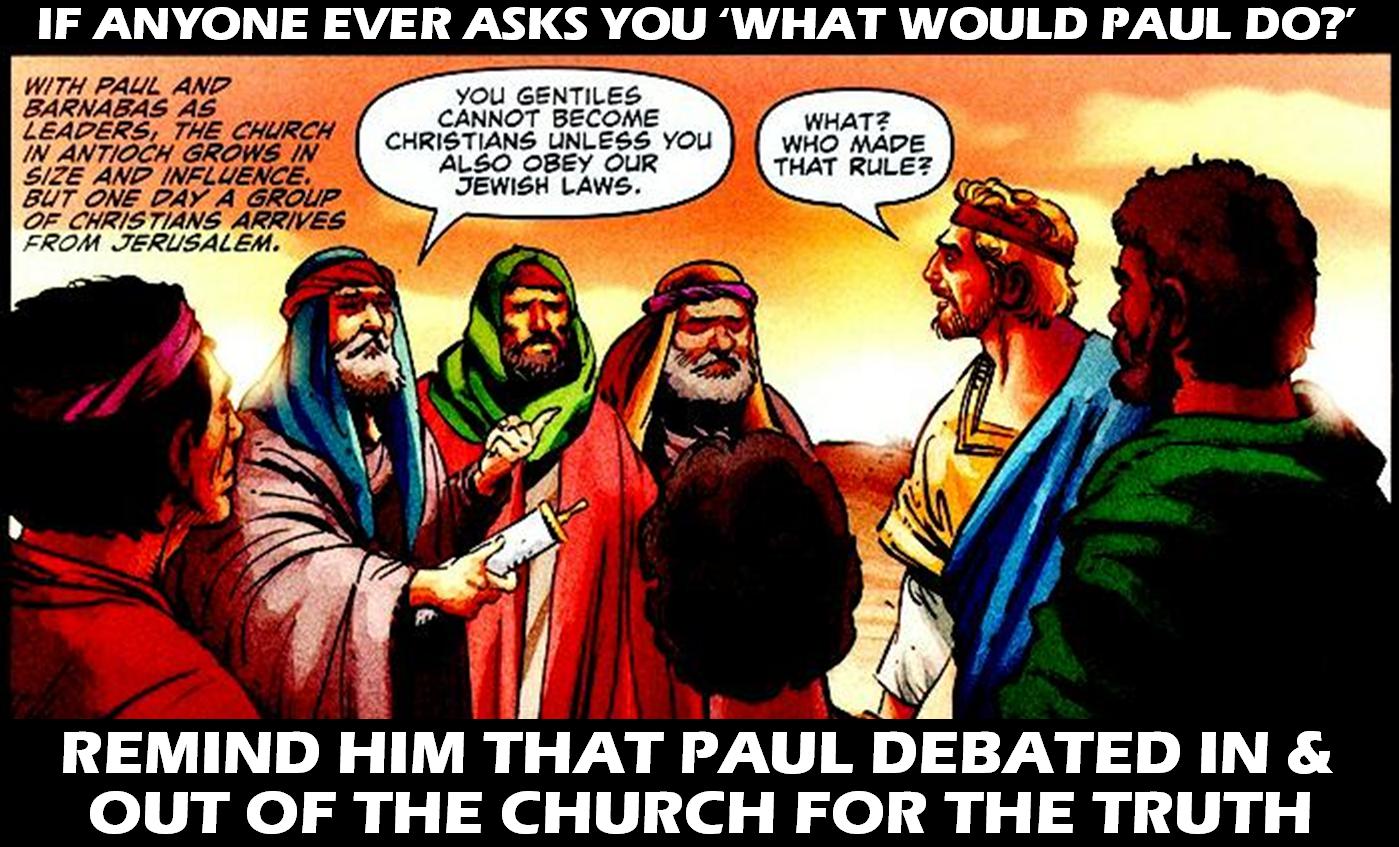What Would Paul Do?
There are those who say that debates are to be absolutely avoided because taking part in them is sinful. But how come in the Bible we find Paul and the other apostles debated in and out of the church for the sake of the truth?
But how come in the Bible we find Paul and the other apostles debated in and out of the church for the sake of the truth?
- Paul debated with the Jews: “He talked and debated with the Hellenistic Jews, but they tried to kill him” (Acts 9:29 NIV).
- Peter, Paul and Barnabas debated in the Church: “This brought Paul and Barnabas into sharp dispute and debate with them. So Paul and Barnabas were appointed, along with some other believers, to go up to Jerusalem to see the apostles and elders about this question” (Acts 15:2 NIV). “And after there had been much debate, Peter stood up and said to them, “Brothers, you know that in the early days God made a choice among you, that by my mouth the Gentiles should hear the word of the gospel and believe” (Acts 15:7 ESV).
- Paul debated with unbelievers: “A group of Epicurean and Stoic philosophers began to debate with him. Some of them asked, ‘What is this babbler trying to say?’ Others remarked, ‘He seems to be advocating foreign gods.’ They said this because Paul was preaching the good news about Jesus and the resurrection” (Acts 17:18 NIV).
Since the Apostle said we must follow his examples in 2 Thes, 3:7 just as he followed Christ in 1 Cor. 11:1; and since Christ prayed for His sheep to follow the message of His disciples (John 17:20), how come some people still think negatively of debates? These are some of the possible reasons why:
- They were taught wrong; debates were demonized from where they came from.
- They are ill-equipped (emotionally and intellectually) to engage in a meaningful?conversations where they will be contradicted.
- They have had bad experience/s in debates and vowed to never engage again.
- They simply want the issue to be brushed aside or to cover it up.
In the KJV, “debate” is considered bad (see Rom. 1:29 and 2 Cor. 12:20). Unfortunately, I cannot find debate definition in the King James Dictionary. In the newer translations however, the words used in Rom. 1:29 and 2 Cor. 12:20 instead of “debate” were: strife and quarreling, respectively (RSV, NIV, and ESV). Therefore strife and quarreling are the ones we should avoid, not debates.
In the Acts 9:29 debate, the Jews tried to kill Paul in Jerusalem. But even before that he was already preaching Jesus is the Christ, the Son of God in the synagogues of Damascus (Acts 9:20). Baffled and defeated the Jews there conspired to kill him and so Barnabas brought him to Jerusalem (Acts 9:27). But since they were also trying to kill him in Jerusalem, they sent him off to Tarsus (Acts 9:30). Note that the violent reactions of the Jews did not stop Paul from preaching the truth about the Lord Jesus Christ where he was. Hostility did not come from Paul. It came as a reaction to the preaching of the Gospel truth. The alternative is not acceptable. Silence is not acceptable.
In the Acts 15 debates, Barnabas, Peter and Paul once again debated this time in the Church for the sake of the truth. They were against the Judaizers who were requiring the Gentiles to convert to Judaism first in order to be saved. But because they were not afraid to engage in debates, the truth about the grace of God prevailed (Acts 15:11).
Read also: What Would Jesus Do? and What Would Elijah Do?
Recent Comments